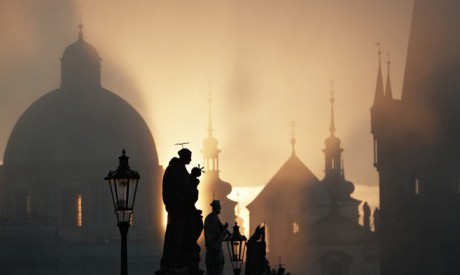In Western Europe, politics and the media are still dominated by the liberal mentality that prevailed among European intellectual elites for most of the nineteenth and twentieth centuries, and gave rise to various versions of the “theory of secularisation.”
Some of those theories assumed, in the light of the changing role of the major Christian churches in certain European countries, the gradual decline or even rapid extinction of religion throughout the world.
Others did not go that far, and simply maintained that religion had shifted out of the public into the private sphere.
Either way, the assumption was that the process was irreversible.
When religion made a global comeback on the political stage over the last three decades, many were shocked.
Religion appeared to them like Samson, once blinded and chained, a laughing stock, shorn of all its strength, and yet here it stood, revived, a frenzied titan threatening the pillars of our houses and the survival of all.
It is now evident that the de-privatisation and re-politicisation of religion is a truly global phenomenon, and does not only concern the monotheistic religions.
“Religious terrorism” and “fundamentalism” are its most obvious, but by no means sole, expressions.
We can find religious symbols and active religious groups nowadays across the political spectrum – from the extreme right to the extreme left; from fighters for civil liberties, human rights and social justice to supporters of authoritarian regimes; from ecological activists to extreme nationalists; from the United States and Latin America to the new states of African; from the Balkans to the Arab countries, from Israel to India or Japan.
The fundamental assumption of the theory of secularisation – that what had been happening in Europe for some time would necessarily have to happen throughout the world – is now regarded as erroneous, especially by sociologists and analysts of globalisation, who view it as one of the many prejudices of an arrogant and naive Eurocentrism.
Religion has proven to be a more vital and multifarious phenomenon than it was viewed by the Enlightenment, positivism or Marxism. Continue reading
Source and Image
Additional readingNews category: Features.




